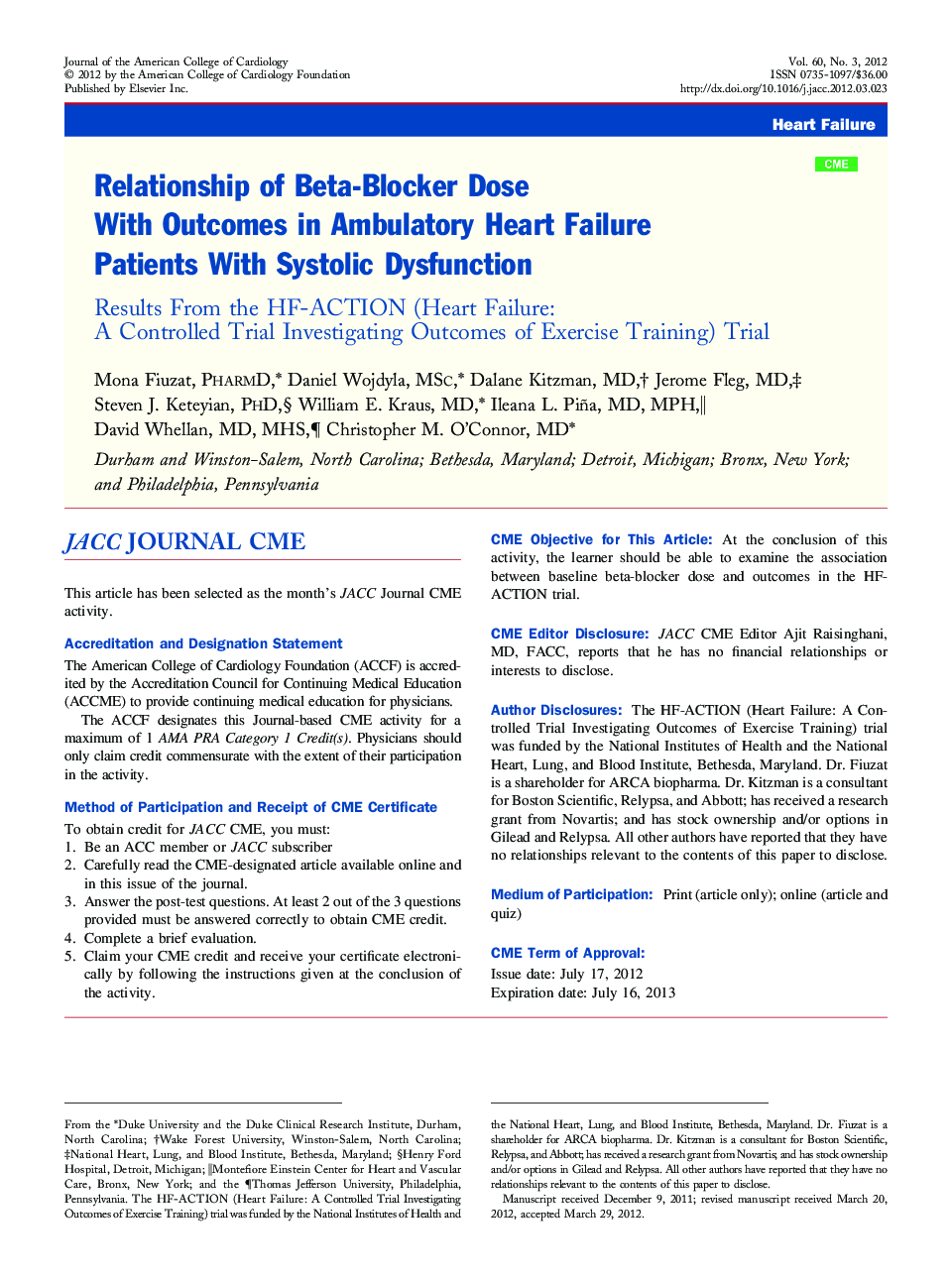| کد مقاله | کد نشریه | سال انتشار | مقاله انگلیسی | نسخه تمام متن |
|---|---|---|---|---|
| 2947008 | 1577203 | 2012 | 8 صفحه PDF | دانلود رایگان |

ObjectivesThis study sought to examine the association between baseline beta-blocker (BB) dose and outcomes in the HF-ACTION (Heart Failure: A Controlled Trial Investigating Outcomes of Exercise Training) trial.BackgroundBeta-blockers reduce morbidity and mortality in chronic heart failure (HF) patients with reduced ejection fraction, but it is unclear whether titrating to higher BB doses improves outcomes in this setting.MethodsThe HF-ACTION trial was a randomized, multicenter trial enrolling 2,331 ambulatory HF patients with systolic dysfunction (New York Heart Association functional class II to IV, left ventricular ejection fraction <0.35) randomized to exercise training versus usual care, with median follow-up of 2.5 years. The BB dose at baseline was standardized with carvedilol equivalents and analyzed as a continuous variable and by discrete dose groups. The relationship between BB dose and the primary endpoint of all-cause mortality or all-cause hospitalization and other cardiovascular secondary endpoints was determined before and after adjustment for variables significantly associated with outcomes in the HF-ACTION cohort.ResultsNinety-five percent of patients were receiving a BB. There was a significant inverse relationship between BB dose and all-cause death or hospitalization but not other cardiovascular endpoints after adjustment for other predictors of outcome, with a linear benefit up to the 50-mg daily dose. There was a significant association between BB dose and change in peak VO2 at 3 months. There was no increase in bradycardia with higher doses of BB.ConclusionsThere was a significant inverse relationship between BB dose and the endpoint of all-cause death or all-cause hospitalization in this well-treated HF cohort with systolic dysfunction, supporting recommendations that titrating doses up to 50 mg/day might confer a benefit in such patients. (Exercise Training Program to Improve Clinical Outcomes in Individuals With Congestive Heart Failure; NCT00047437)
Journal: Journal of the American College of Cardiology - Volume 60, Issue 3, 17 July 2012, Pages 208–215